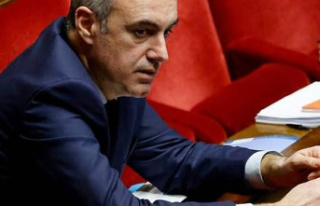The Minister of the Economy, Bruno Le Maire, should be received by the Finance Committee of the National Assembly on March 22, according to the specialized site Context, to initiate a debate on the management of motorway concessions. Most of the French axes were privatized in 2006, and 90% of concession contracts will end between 2031 and 2036. There are almost ten years to prepare for the future, but a senatorial report from September 2019 already urged the government to open reflections, as the issues are complex and the contracts nebulous.
In January, Le Canard enchaîné revealed that the General Inspectorate of Finance (IGF) had given Bruno Le Maire, at his request, another alarming report on the subject in February 2019, but the minister did not publish it. Nor did he take action accordingly. This Monday, on France Info, he claimed that part of this report would finally be made public. On the other hand, another part should soon be used by the State to support its arguments against the concession companies (SCA) in the various disputes between them, and must therefore remain confidential.
�� Report on motorway concessions: "I will make public the part of the report that can be made public", says Bruno Le Maire. "We are not hiding anything, we are transparent," adds the Minister of the Economy. pic.twitter.com/z9Owy64Vmd
The subjects of dispute are manifold. Already, according to Le Canard enchaîné, the IGF report would have calculated a profitability of motorway concessions of around 12%, against 7.67% contractually. The companies that operate the motorways would earn too much money compared to what has been established (10 billion euros in turnover in 2021, all companies combined), which could be a legitimate reason for contract shortening for the state.
However, according to the calculations of the Transport Regulatory Authority (ART), responsible for monitoring concessions, this excess profitability is not obvious, so doubt remains. One of the main concessionaires, Vinci Autoroutes, declared by the voice of its president, Pierre Coppey, not to be "in discussion with anyone" on a shortening of the contract.
Another point of contention: taxes. If we refer to the figures provided by the Association of French Motorway Companies and published in a 2020 Senate report, out of ten euros in tolls, four would be dedicated to taxes. For comparison, 2.40 euros are spent on construction and modernization, and the same amount on debt repayment and investor compensation. In addition to too high a proportion of taxes, what gets stuck with dealers is the indexation of the land development tax to inflation since 2020. This translates into an increase in expenditure of 880 million euros for SCAs, an amount that seems significant, but which in fact corresponds to a drop in profitability of 0.02%.
According to the ART - which refuses to give a partisan opinion on the question -, these figures are all the same "to be compared to the savings generated by the reduction in the corporate tax rate over the previous five-year period, from a order of magnitude ten times higher. The SCAs have nevertheless initiated proceedings with the administrative courts to be able to pass on the tax increases to the toll price, so as not to encroach on their net margins, or to benefit from tariff compensation. In addition to the renegotiation of concession contracts, it is therefore also a legal battle between the State and the motorway companies.
Regarding the future and the negotiation of future concession contracts, ART recommends operating on the same user-pays mode, but with shorter contracts and a much more precise and binding framework for the profitability of motorway companies. Current debates arise from the vagueness and complexity of contracts that do not allow precise and universal calculation of the profitability of concessions, nor to know with which tools it is framed. A more regular renewal of these contracts would also, according to the ART, instil more competition between the various SCAs and flexibility for the State.
The various parliamentary reports also highlight the need to make the Regulatory Authority a real authority, with binding power over the SCAs. However, the post of president of the ART is in a tie at a critical moment, as negotiations begin. The last president, Bernard Roman, a socialist, ended his term in 2022. To replace him - after a year of interim for Philippe Richert - Marc Papinutti, director of the cabinet of the Minister of Ecological Transition, Christophe Béchu, was appointed, before resigning for "personal reasons".












